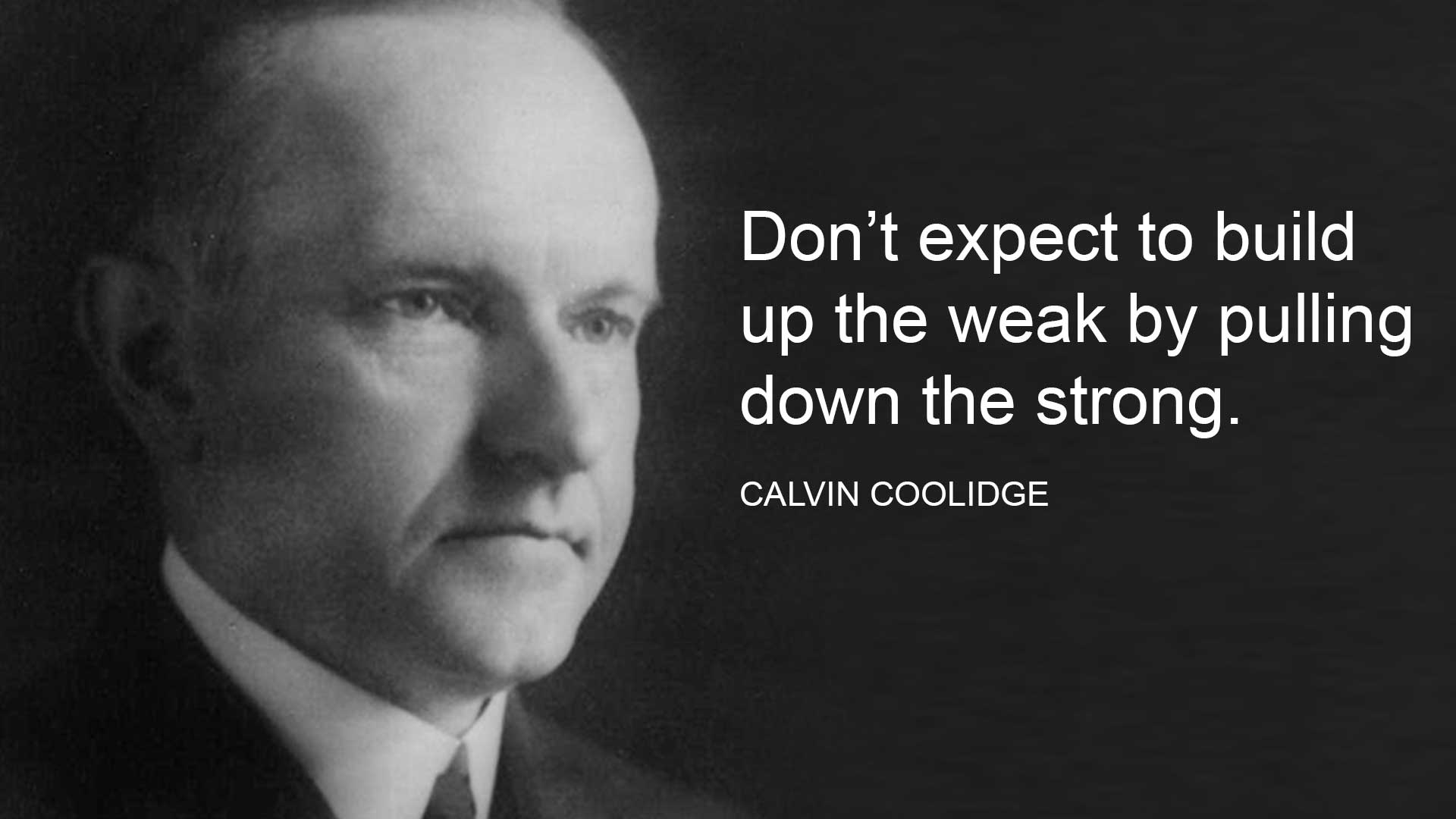The world of today is radically different to that of 1776. Shouldn’t America’s governing principles evolve to account for modern America?
In 1926, on the 150th anniversary of the American Revolution, President Calvin Coolidge gave the answer in a speech. Here is a selection of that speech:
It is often asserted that the world has made a great deal of progress since 1776, that we have new thoughts and new experiences which have given us a great advance over the people of that day, and that we may therefore very well discard their conclusions for something more modern.
But that reasoning can not be applied to this great charter. If all men are created equal, that is final. If they are endowed with inalienable rights, that is final. If governments derive their just powers from the consent of the governed, that is final.
No advance, no progress can be made beyond these propositions.
If anyone wishes to deny their truth or their soundness, the only direction in which he can proceed historically is not forward, but backward toward the time when there was no equality, no rights of the individual, no rule of the people. Those who wish to proceed in that direction can not lay claim to progress. They are reactionary. Their ideas are no more modern, but more ancient, than those of the Revolutionary fathers.
CALVIN COOLIDGE IN A SPEECH ON THE 150TH ANNIVERSARY OF THE DECLARATION OF INDEPENDENCE
The politicians of our day could learn from Coolidge. He understood that fundamental insights about human nature and basic political principles, are unwavering. That however imperfectly we implement those principles, it does not undermine the validity of those principles. Fundamental truths are enduring because they are fundamental and not based on superficial characteristics of any particular age.
The Founding Fathers were revolutionary. It was they, who took important philosophic identifications of people like John Locke, realized their validity, and codified them into the founding of a new nation. The success of that nation is testament to the truth of their vision. It’s a vision that we desperately need to rediscover and understand.

